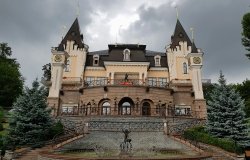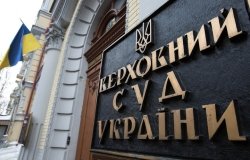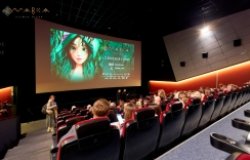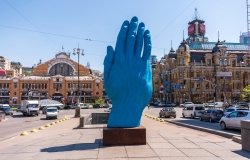
A blog of the Kennan Institute
Finding Light on Stage in Dark Times
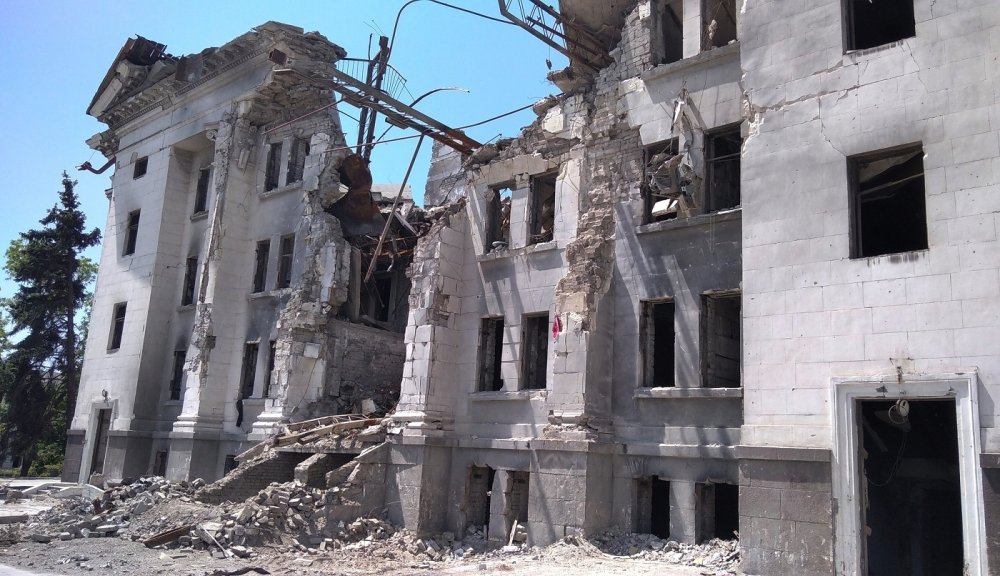
Shutterstock.com/it/g/syvetsolena
Theater director Anatoliy Levchanko resurrected the Mariupol Drama Theatre in Kyiv in April. The company staged a performance of Neda Nezhdana’s Light at the End of the Tunnel at The Les Kurbas Centre in a remarkable feat of resilience, since its stately building is gone.
Levchenko had been scheduled to open a new production at his Mariupol theater the day after the Russians launched their full-scale invasion in February 2022. Instead, the city and his theater were brutalized as Russian forces came to occupy the port city in a cyclone of violence captured by Stystav Chernov’s Oscar-winning documentary 20 Days in Mariupol. The theater was obliterated a couple of weeks later by Russian rockets, slaughtering up to 600 civilians (including several hundred children) who mistakenly thought there would be no attack on a cultural landmark with “Children” spelled out in large letters on its roof.
Levchenko’s travails were only beginning. The Russians captured him and imprisoned him in Donetsk for 10 months on suspicion of terrorism without bringing any charges. Once released, Levchenko and his family made their way across battle lines to Ukrainian-controlled territory. Settling in Kyiv with his wife and son, Levchenko set about reviving his company.
Controversy was not new to Levchenko’s dramaturgy. He assumed the directorship of the Mariupol Drama Theatre in 1994 and set out to revive the company along European—rather than Soviet—models. In 2020, authorities refused to renew his contract, citing his embrace of what they saw as “pro-Ukrainian” artistic and political programs. He established his own company, Terra Incognita, to stage Ukrainian and Russian plays as well as works from abroad.
Once in exile in Kyiv, Levchenko found it difficult to pull his actors together. Some members of his company had found safer haven in western Ukraine, where they brought their wartime experiences to the stage. Others remained under Russian occupation, performing for the new authorities and decrying the purported abuses of Ukrainian nationalists. Eventually, Levchenko assembled a cast comprised primarily of Mariupol drama students who had managed to relocate to Kyiv.
Levchenko chose Neda Nezhdana’s Light at the End of the Tunnel as his reconstituted company’s first offering. Nezhdana’s one-act satire revolves around two women trapped in an underground morgue, which symbolizes the collapsing Soviet Union. Eventually they realize that they have been confined for no particular reason and are free to leave. For playwright Nezhdana, the new production reveals how a work she thought of engaging one historic event—the collapse of the Soviet Union—now speaks to the challenges of a second, the current war.
The company’s return to the stage assumed special meaning for the thousands of refugees from Mariupol who have relocated to Kyiv. Temporary extra seating was added opening night to accommodate all of the Mariupolites who wanted to attend. The evening connected those who had been forced from their homes to one another and to their new city in fresh ways. As one audience member who had fled occupation told Anna Malpas from Barron’s, “It's like we lost something there and it's been moved here. It gives me goosebumps.” Finding so many others who have shared the experience of exile strengthened their resolve to resist Russian aggression.
Beyond any artistic achievement, Levchenko’s production underscores the continuing determination of many Ukrainians to carry on as regular a life as possible despite the war. The director, cast, and audience members joined to continue what they had begun prior to February 2022: to engage with theater as a way of understanding the present. The light at the end of Nezhdana’s imagined tunnel shines as bright as ever.
The opinions expressed in this article are those solely of the author and do not reflect the views of the Kennan Institute.
See our newest content first.
Subscribe to receive the latest analysis from Focus Ukraine
About the Author

Blair A. Ruble
Former Wilson Center Vice President for Programs (2014-2017); Director of the Comparative Urban Studies Program/Urban Sustainability Laboratory (1992-2017); Director of the Kennan Institute for Advanced Russian Studies (1989-2012) and Director of the Program on Global Sustainability and Resilience (2012-2014)

Kennan Institute
The Kennan Institute is the premier US center for advanced research on Eurasia and the oldest and largest regional program at the Woodrow Wilson International Center for Scholars. The Kennan Institute is committed to improving American understanding of Russia, Ukraine, Central Asia, the South Caucasus, and the surrounding region though research and exchange. Read more




